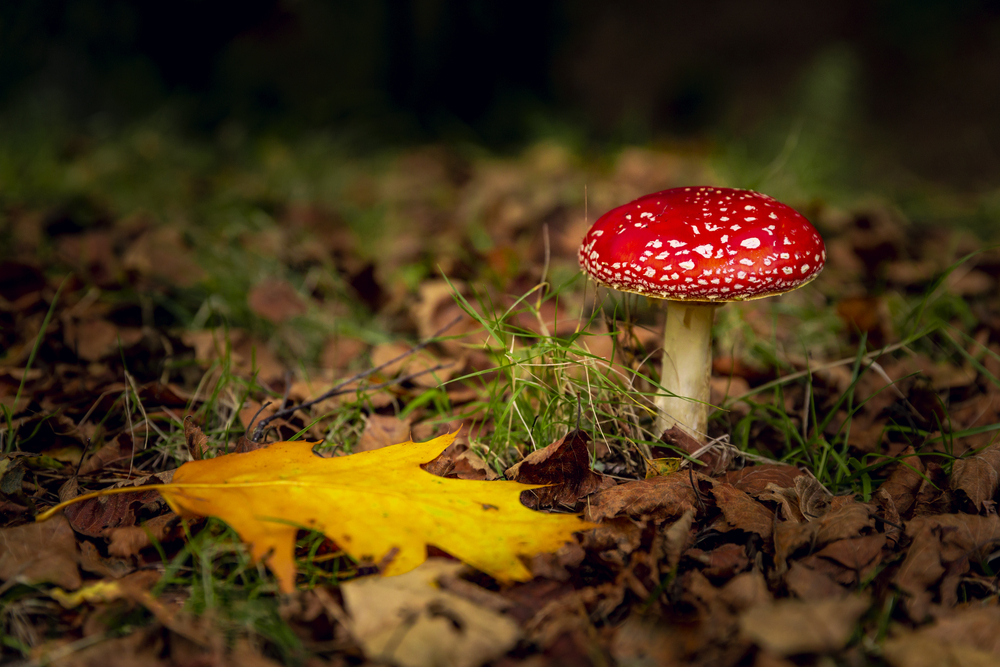Mushrooms are a fascinating and diverse group of organisms that have captured human imagination for centuries. They have been an integral part of human history, deeply woven into cultures, cuisine, medicine, and folklore. In this exploration of “The History of Mushrooms,” we’ll embark on a journey through time to discover the intriguing role these enigmatic delights have played throughout the ages.

Ancient Beginnings
Mushrooms have ancient roots, and evidence of their consumption can be traced back to as early as 3000 BCE. Ancient cave paintings in Spain depict scenes of mushroom foraging, hinting at the early human fascination with these mysterious organisms. Cultures like the Chinese, Egyptians, and Greeks acknowledged mushrooms for their unique properties and flavors. However, the true nature of mushrooms remained shrouded in mystery.
The Greek Connection
The Greeks were among the first to recognize the medicinal potential of mushrooms. The famous Greek physician Hippocrates, known as the “Father of Medicine,” prescribed mushrooms for various ailments. While their knowledge was rudimentary compared to modern medicine, their appreciation of mushrooms’ healing properties laid the foundation for future explorations.
Mycology’s Modern Dawn
Mycology, the study of fungi, emerged in the 17th century when groundbreaking advancements in microscopy allowed scientists to delve deeper into the fungi kingdom. The first comprehensive study on fungi, “Historia Fungorum,” was published by Italian scientist Pier Antonio Micheli in 1737, further illuminating the mysteries of mushrooms. It was a crucial step toward understanding their biology, growth, and classification.
The French Connection
Mushrooms found their way into French cuisine and culture, particularly during the reign of King Louis XIV. It was during this era that the cultivation of mushrooms, especially the prized “champignon de Paris” (button mushroom), gained popularity. This French appreciation for mushrooms in cooking became a cornerstone of French culinary traditions, and the rest of the world followed suit.
Magic and Mysticism
Throughout history, certain mushrooms, such as the Amanita muscaria and Psilocybe cubensis, gained notoriety for their hallucinogenic properties. These “magic mushrooms” were used by various cultures in spiritual and shamanic rituals. In some cases, they were considered sacred and a means of connecting with the divine. It wasn’t until the mid-20th century that the psychoactive compounds responsible for these effects, such as psilocybin, were isolated and studied.
Mushrooms in Medicine
In the 19th century, the medicinal potential of mushrooms began to be more deeply explored. European doctors, particularly in Russia, began using certain mushrooms, such as the Agaricus blazei and Chaga, to treat a range of ailments. In modern times, research has intensified, revealing the health benefits of many mushroom species. One of the most well-known medicinal mushrooms is the reishi, used in traditional Chinese medicine for centuries and gaining global recognition for its immune-boosting properties.
The Mushroom’s Pop Culture Moment
Mushrooms have left an indelible mark on pop culture. They have featured prominently in art, literature, and movies. Lewis Carroll’s “Alice’s Adventures in Wonderland” famously includes Alice’s encounters with the Caterpillar smoking a hookah and a mushroom that makes her grow or shrink. Additionally, Mario, the iconic video game character, has been embarking on mushroom-fueled adventures since his debut in the 1980s.
Modern Cultivation and Culinary Delights
Today, mushrooms are a staple in many culinary traditions worldwide. They’re loved for their unique umami flavor and versatility in various dishes. From shiitake and oyster mushrooms to truffles and porcini, the variety of mushrooms available in modern cuisine is staggering. The rise of gourmet mushroom farming has led to a mushroom renaissance in culinary arts, with chefs constantly discovering new ways to incorporate them into their creations.
Fungi in Environmental Science
Mushrooms play a pivotal role in ecosystems worldwide. They are nature’s recyclers, breaking down organic matter and returning essential nutrients to the soil. Mycorrhizal fungi form symbiotic relationships with plants, aiding in their nutrient absorption and overall health. Fungi also act as indicators of environmental health, with some species thriving in specific habitats, making them a valuable resource for environmental scientists.
Challenges and Opportunities
While mushrooms have a rich history, they face challenges in the modern world. Deforestation, habitat destruction, and climate change have all impacted the availability and diversity of mushrooms. However, these challenges have spurred conservation efforts and research into the cultivation of endangered or valuable species.
Mushrooms also hold the promise of addressing current global concerns. For example, mycoremediation, the use of mushrooms to clean up contaminated environments, is an emerging field with tremendous potential. Additionally, research into the nutritional and medicinal benefits of mushrooms continues to grow, offering new avenues for health and well-being.
In the Garden and Beyond
For gardening enthusiasts, mushrooms can either be a delight or a nuisance. Gardeners often encounter the fruiting bodies of mushrooms in their lawns or flowerbeds. While some are considered harmless and even beneficial, such as mycorrhizal fungi, others can be invasive. Understanding the role of mushrooms in your garden can lead to more effective gardening practices.
A Growing Field of Study
As scientific knowledge deepens, the study of fungi is expanding, revealing the astonishing biodiversity of mushrooms and their complex relationships within ecosystems. From taxonomists identifying new species to mycologists unlocking the secrets of symbiosis, fungi have become a hotbed of research and discovery. Moreover, the potential for biotechnology, including the development of sustainable materials and medicines from fungi, is immense.
The Future of Fungi
Mushrooms continue to captivate and inspire us with their rich history and promising future. As we uncover more about their biological intricacies and untapped potential, mushrooms are poised to play an increasingly significant role in human health, sustainable agriculture, environmental conservation, and technology.
In closing, the history of mushrooms is a story of human curiosity, culinary innovation, and scientific exploration. These enigmatic delights have been cherished for centuries, and their role in our world continues to expand, offering new horizons of understanding and opportunity. Whether as a delectable ingredient in a gourmet meal, a source of health and healing, or a symbol of transcendence, mushrooms remain an enduring source of wonder and fascination.
